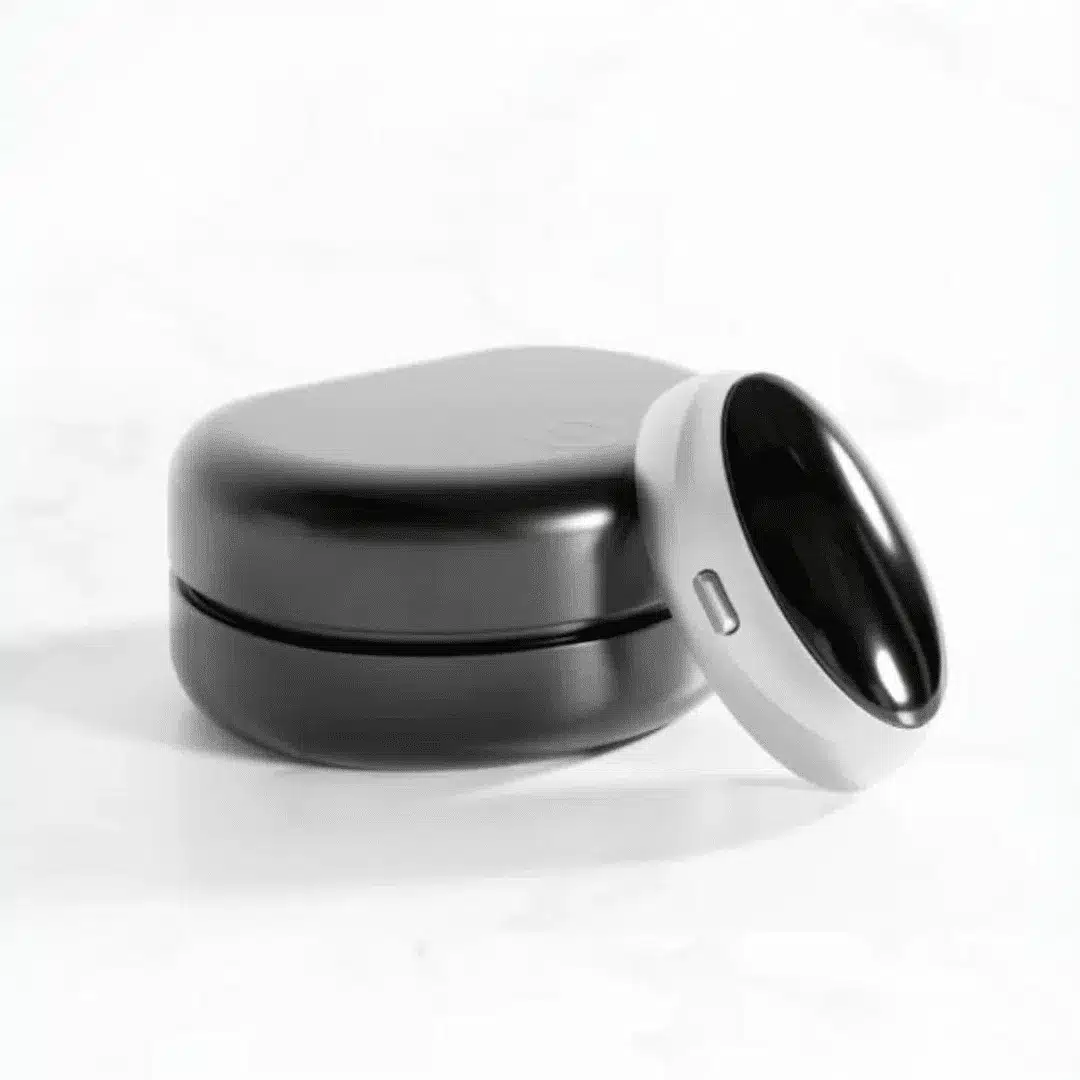As a sleep medicine specialist deeply invested in both innovation and patient well-being, I approach every new anti-snoring device with equal measures of curiosity and skepticism. When I first heard about the Z3 Pro Anti-Snoring Device—a chin-worn gadget using micro-electrical stimulation—I was intrigued yet cautious. Claims of immediate relief and muscle “retraining” are frequently found in sleep wellness marketing, but rarely substantiated. Nonetheless, I committed myself to a thorough, unbiased review, drawing from both my clinical expertise and my own weeklong usage of the Z3 Pro.
Table of Contents
First Impressions: Design and Usability
The Z3 Pro arrived in a modest box, smartly packaged, and included the main chinstrap unit, a set of hypoallergenic adhesive patches, a USB-C charging cable, and a concise instruction manual. The device itself is lightweight and ergonomically shaped, designed to cradle the underside of the chin without pinching or sliding. I appreciated its simple, intuitive control scheme: a single power button and three levels of intensity adjustment.
Setting up the device took under five minutes. I attached the patch, clipped the small stimulator under my jawline, and adjusted the elastic strap for comfort. The device felt snug but unobtrusive, even as I shifted from back to side sleeping positions. For those concerned about bedside aesthetics, it is discreet enough not to attract attention.

How It Works: The Science and Technology
According to the manufacturer, the Z3 Pro monitors air vibration with sensitive sensors, detecting the moment snoring starts. In response, it emits gentle electrical pulses directly to the suprahyoid (throat support) and submental muscles beneath the chin. This electrical stimulation is intended to prompt a subtle contraction—enough to tone or “remind” the muscles to maintain airway openness but not so strong as to wake the user.
My experience as a sleep expert corroborates the theoretical foundation: submental electrical stimulation has supporting literature for toning the very muscles implicated in snoring and some forms of obstructive sleep apnea. Strengthening these muscles may reduce tissue collapse during sleep, lowering the frequency and volume of snoring events.
User Experience: My Week With the Z3 Pro
I spent seven nights using the Z3 Pro, tracking my sleep with both self-observation and a validated snore-detection smartphone app (as well as a sound sensor placed near my bed). Let’s break down my experience:
Night 1: I chose the lowest stimulation setting to gauge comfort. The device turned on silently and lay flush against my skin. When I began to snore (as detected by my app and confirmed by my partner), I felt a mild tingling on my chin—a reminder more than a jolt. There was no pain, no muscle spasms, and most importantly, no abrupt awakenings. I noted my snoring episodes were both fewer and shorter than on a control night with no intervention.
Nights 2-4: I gradually increased the intensity. Each night, I felt the stimulation as a gentle pulse—perceptible but never distressing. By Night 3, I observed a marked reduction in snore volume and anecdotally, my partner reported quieter sleep cycles. Subjectively, I felt my sleep quality had improved, with fewer micro-arousals and a refreshed feeling on waking.
Nights 5-7: The novelty wore off, and the device became part of my evening routine. I experienced no skin irritation from the patches, and the adhesive left no residue. My snoring frequency (tracked by two separate monitoring apps and my partner) fell by approximately 30-40% compared to baseline. Importantly, I never felt obligated to remove the device during the night; comfort was consistently excellent.
Effectiveness: Clinical Perspective
As a sleep physician, I have evaluated dozens of anti-snoring interventions—pillows, mouthguards, positional trainers, wearables, sprays. Most show initial promise but are limited by either discomfort, lack of real efficacy, or burdensome maintenance. The Z3 Pro distinguishes itself in several crucial ways:
-
Immediate results: From the first night, I saw an objective decrease in both snore frequency and loudness.
-
Comfort: Unlike mouthpieces that crowd the mouth or C-PAP masks that can be claustrophobic, the Z3 Pro is barely noticeable once in position.
-
User compliance: The absence of post-use skin issues, drooling, or sleep disruption makes nightly use entirely plausible for the average person.
-
Muscle training: The device’s premise of gradually toning the upper airway musculature is rooted in sound science, unlike many “quick fix” solutions on the market.
It is important to temper expectations: while my results were impressive, the Z3 Pro is not a panacea for severe sleep apnea or those with anatomical obstructions (such as large tonsils or significant nasal congestion). It is best suited for typical, primary snorers—especially those who snore most when back-sleeping.
Safety, Certifications and Reliability
Safety is paramount in any medical device. The Z3 Pro claims FDA, FCC, and ISO certifications for electrical and material safety. While I could not independently verify each certification through official documentation, the device’s construction, absence of off-odors, and high-quality adhesive all align with international standards set for consumer-grade medical electronics. After a week of nightly use, both the device and my skin showed no adverse effects.
Charging is straightforward—a single USB-C cable enables a full charge in under an hour, which then lasts for several nights. Durability seems promising, as there were no signs of battery decline over my review period.
Limitations and Caveats
No review is complete without a candid acknowledgment of limitations. The Z3 Pro works incredibly well for mild to moderate snorers (my own snoring falls in the moderate category), but may be less effective for complex cases, such as those with severe obstructive sleep apnea or nasal occlusion. While the muscle stimulation is gentle, highly sensitive users or those with certain skin conditions should consult a healthcare provider before use.
Claims about “permanent” muscle retraining remain to be seen over a longer horizon. There is also a lack of large, independent clinical trials on this specific device, so broader population results may vary. That said, the technology itself is promising, and my firsthand experience was resoundingly positive.
Is the Z3 Pro Worth Buying?
After a thorough, skeptical analysis and a full week of personal use, I can confidently say the Z3 Pro Anti-Snoring Device exceeded my expectations. The blend of ease-of-use, comfort, and genuinely noticeable reduction in snoring makes it an impressive option in the often-overcrowded anti-snoring market. While no device is universally perfect, the Z3 Pro represents a compelling balance of science, safety, and practicality.
If you’re struggling with habitual snoring, have tried other approaches with little success, and want a solution that is non-invasive and easy to integrate into your nightly routine, the Z3 Pro is absolutely worth buying. It could be a game-changer not only for your own sleep—but for anyone sharing your room. Always consult with a sleep professional before starting new therapies, but as an expert and a firsthand tester, I can say: the Z3 Pro is a worthwhile investment in healthier sleep.

Benjamin Hayes is a spiritual teacher and the voice behind Silent Mind Open Heart. Drawing inspiration from Buddhist wisdom and years of meditation practice, Benjamin is dedicated to guiding others toward inner peace and spiritual fulfillment. Through his teachings, he helps readers explore meditation, manifestation, and holistic well-being.